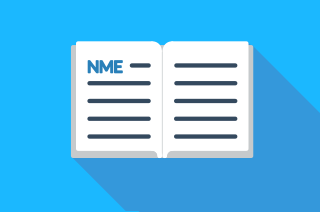By Aurore Raoux
Every 26 April, the world celebrates the importance of intellectual property rights in our daily lives. The WIPO created this event in 2000 “to celebrate creativity, and the contribution made by creators and innovators to the development of societies across the globe”. Copyright in particular provides legal protection and remuneration to news reporters and publishers.
Copyright enforcement in the digital world has never been so important to tap into the potential of online news and invest continuously in innovative, diverse and professional journalism. The French competition authority has recently recognized the value of press content in a case opposing French publishers against Google. Another reason to celebrate.
Facts
Following the French implementation of the neighbouring right in July 2019, Google unilaterally decided to remove press contents from its platforms News, Search and Discover, unless publishers granted free licenses. Press publishers’ representatives (Syndicat des éditeurs de la presse magazine, l’Alliance de la presse d’information générale) and a major press agency (Agence France-Presse) lodged a complaint in November 2019, asking for urgent interim measures against Google. On 9 April 2020, the French Competition Authority released its preliminary ruling in favour of press publishers.
The preliminary ruling
The competition authority ordered urgent interim measures on the ground that Google’s behaviour caused “serious and immediate harm” to the press sector. In addition, Google’s new terms and conditions were likely to constitute an abuse of dominant position on the ground of “imposed unfair trading conditions”, “circumvention of the law” and “discrimination”. The interim measures require Google to enter negotiations with press publishers and news agencies in good faith to discuss the terms of content reuse and remuneration. During the three-month negotiations, Google must provide monthly reports to the Authority on how it complies with the decision.
Why is the preliminary ruling important for press publishers?
The preliminary ruling represents a landmark decision for the news industry. First, because press publishers are given the opportunity to sit at the negotiation table with Google, and because the injunction requires that negotiations end up with a remuneration proposal from the tech giant. Second, the decision represents an attempt to balance out relations between content producers and online distributors that have so far largely captured advertising revenues. Last but not least, the decision recognises the value of press content the production of which requires significant investments and expertise.
The French Authority’s decision is extremely encouraging for the news media industry. But it should be considered the push for a longer run, with several milestones:
- The conduct of negotiations: French publishers need to get ready for what promises to be tough discussions. The issue comes down to how to administer the press publisher right. Strategic considerations arise: whether to enter in bilateral negotiations or jointly through a trade association or a CMO; what content to license, at what price and to which platform. Multiple options are on the table and the solution is far from being straightforward. It is time for publishers to make it clear what distribution and remuneration models serve their digital business models best.
- Pending ruling on the merits of the case: The interim measures are meant to prevent further economic damage and improve remuneration conditions for publishers. However, it remains to be seen whether the French Authority will uphold the preliminary verdict and find Google in breach of competition law. The language used so far is strongly indicative that abusive conduct has taken place. Still, further investigations and deliberations will be conducted to find out whether competition law has been infringed. If further findings suggest otherwise, the modernisation of competition rules should be envisaged to reflect market realities.
- Ongoing copyright transposition: France is the first EU Member State to transpose the neighbouring right from Article 15 of the Copyright Directive. While European publishers welcome the important precedent set by the French ruling, it is also a reminder that transposition in other countries is far from complete. For similar negotiations to take place, the neighbouring right should first be transposed in a way that is compatible with the spirit and objective of the Directive. The template emerging from negotiations will provide an indication of the scope of the neighbouring right.
- Internet regulation, work in progress: Despite the reluctance of European competition authorities to intervene on what has up until recently been perceived as a purely copyright-related issue, there now seems to be a growing shared understanding that the implications are much wider. The obligation to negotiate in good faith is an attempt to curb the unrivalled market power of platforms that shape the Internet. The French ruling shows that reaching the right equilibrium between content creators and digital gatekeepers might require adjustments on several fronts: copyright law, but also competition enforcement.
The decision also comes at a time of ongoing debates in Brussels around a Digital Services Act that will update liability rules for online intermediaries while in Australia, the government is working on a code of conduct requiring tech giants to share advertising revenues with media companies and pay for news stories. All these initiatives represent opportunities at national and regional level to modernise Internet rules.
To conclude, the French decision is encouraging for news publishers as it acknowledges ownership of online press content and the remuneration due to them. By opening discussions, the ruling has the potential to pave the way to a fairer, more competitive and innovative online ecosystem where terms are not dictated by a dominant platform but are freely negotiated. Such agreement should reflect the Internet of tomorrow, one that rewards creation and stimulates the professional journalism offering.
Happy IP Day!










